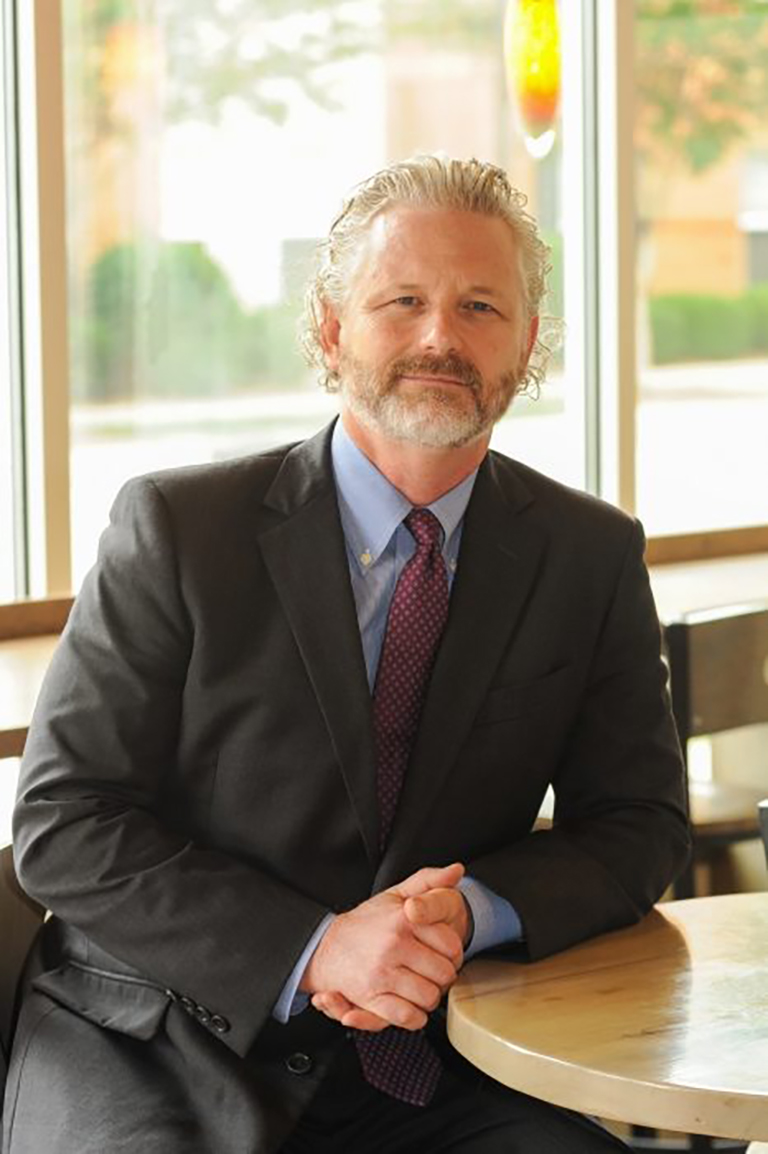Letter from the Executive Director

BIO—Dr. Eric Weisel
Dr. Eric Weisel is the Executive Director at VMASC and the Associate Vice President for Applied Research at Old Dominion University. He is a graduate of the United States Naval Academy and received a B.S. in Mathematics in 1988, later serving the United States Navy as a submarine officer on Los Angeles-class attack submarines and Navy staffs. Following, he received his M.S. in Operations Research from the Florida Institute of Technology in 1995 and is also one of the first graduates of VMASC’s Ph.D. program through ODU, receiving his Ph.D. in Modeling, Simulation, and Visualization (MS&V) Engineering in 2004.
Dr. Weisel was named the sixth Executive Director of the center in the Fall of 2018, after serving as Interim Director since June of 2017. As Interim Director, he helped secure two Go Virginia awards, more than $5 million in overall awards, and ODU’s membership in the Systems Engineering Research Center.
As current Executive Director, Dr. Weisel is driving VMASC efforts to diversify the center’s research capabilities and areas of impact. He envisions research activity and ecosystem development to further incorporate human factors into technology-centered solutions to complex problems. He sees the unique aspects of humanity, such as our emotions, our senses, and our cultural identities as being assets in driving the creation of new technology and enhancing solutions already available, creating a digital ecosystem where people and technology are intertwined and placing VMASC at the center of Virginia’s digital transformation.
WELCOME TO
The Virginia Modeling, Analysis, and Simulation Center.
The Virginia Modeling, Analysis, and Simulation Center, or VMASC, is an enterprise center of Old Dominion University, supporting the University’s research mission through innovation, workforce development, and industry ecosystem engagement programs that create and integrate digital technologies into everyday practice—VMASC performs applied research leading to digital transformation. The Center’s research staff of over 70 faculty, scientists, support professionals, and students perform scientific research, develop computational models, and create information-to-insight and digital engineering solutions in the areas like cybersecurity, digital shipbuilding, and health equity. VMASC maintains three research and engagement sites in the Hampton Roads region of southeast Virginia—the Suffolk facility is a secure 60,000 square foot research center supporting 11 collaboration labs and 10 conference and meeting rooms hosting events for up to 150 participants.
Over the years, VMASC has grown from a scholarly research facility providing modeling and simulation support to the defense sector into one of Hampton Roads’ and Virginia’s premier innovation centers. VMASC research laboratories are state-of-the-art; but our research family of scientists, researchers, and students is our most valued asset. Our team advances cutting edge technologies and methods to perform our research; and through this research contributes to the vanguard of our evolving digital culture.
When I look at the work performed by VMASC and our scholarly colleagues at ODU, I see a future where we have helped shape the next generation of industries, commercial solutions, and technological cultures. I see a future where our facility is integral to not only growth, but also the advancement of thought and social welfare in Hampton Roads. This is why the Center focuses on supporting the next generation of workers, thinkers, and decision-makers as they grow their skills, join and build new industries, and shape tomorrow’s Hampton Roads.
Thank you for taking this journey with me at VMASC. I am excited to see what we uncover next.
Thank you.
Eric Weisel, Ph.D.
Letter from the Executive Director

BIO: Dr. Eric Weisel
Dr. Eric Weisel is the Executive Director at VMASC and the Associate Vice President for Applied Research at Old Dominion University. He is a graduate of the United States Naval Academy and received a B.S. in Mathematics in 1988, later serving the United States Navy as a submarine officer on Los Angeles-class attack submarines and Navy staffs. Following, he received his M.S. in Operations Research from the Florida Institute of Technology in 1995 and is also one of the first graduates of VMASC’s Ph.D. program through ODU, receiving his Ph.D. in Modeling, Simulation, and Visualization (MS&V) Engineering in 2004.
Dr. Weisel was named the sixth Executive Director of the center in the Fall of 2018, after serving as Interim Director since June of 2017. As Interim Director, he helped secure two Go Virginia awards, more than $5 million in overall awards, and ODU’s membership in the Systems Engineering Research Center.
As current Executive Director, Dr. Weisel is driving VMASC efforts to diversify the center’s research capabilities and areas of impact. He envisions research activity and ecosystem development to further incorporate human factors into technology-centered solutions to complex problems. He sees the unique aspects of humanity, such as our emotions, our senses, and our cultural identities as being assets in driving the creation of new technology and enhancing solutions already available, creating a digital ecosystem where people and technology are intertwined and placing VMASC at the center of Virginia’s digital transformation.
WELCOME TO
The Virginia Modeling, Analysis, and Simulation Center.
The Virginia Modeling, Analysis, and Simulation Center, or VMASC, is an enterprise center of Old Dominion University, supporting the University’s research mission through innovation, workforce development, and industry ecosystem engagement programs that create and integrate digital technologies into everyday practice—VMASC performs applied research leading to digital transformation. The Center’s research staff of over 70 faculty, scientists, support professionals, and students perform scientific research, develop computational models, and create information-to-insight and digital engineering solutions in the areas like cybersecurity, digital shipbuilding, and health equity. VMASC maintains three research and engagement sites in the Hampton Roads region of southeast Virginia—the Suffolk facility is a secure 60,000 square foot research center supporting 11 collaboration labs and 10 conference and meeting rooms hosting events for up to 150 participants.
Over the years, VMASC has grown from a scholarly research facility providing modeling and simulation support to the defense sector into one of Hampton Roads’ and Virginia’s premier innovation centers. VMASC research laboratories are state-of-the-art; but our research family of scientists, researchers, and students is our most valued asset. Our team advances cutting edge technologies and methods to perform our research; and through this research contributes to the vanguard of our evolving digital culture.
When I look at the work performed by VMASC and our scholarly colleagues at ODU, I see a future where we have helped shape the next generation of industries, commercial solutions, and technological cultures. I see a future where our facility is integral to not only growth, but also the advancement of thought and social welfare in Hampton Roads. This is why the Center focuses on supporting the next generation of workers, thinkers, and decision-makers as they grow their skills, join and build new industries, and shape tomorrow’s Hampton Roads.
Thank you for taking this journey with me at VMASC. I am excited to see what we uncover next.
Thank you.
Eric Weisel, Ph.D.

